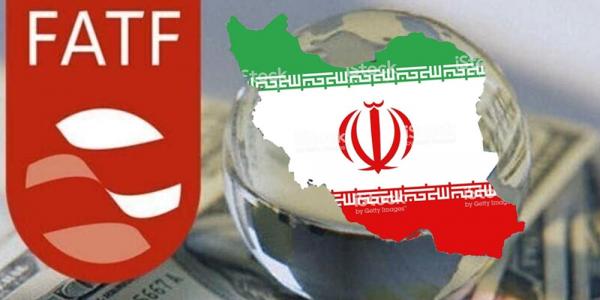
Dr. Mohammad Mehdi Mazaheri – university professor
The Task Force on Financial Action (on Money Laundering), or FATF for short, is the name of an intergovernmental organization established in 1989 at the Group of 7 countries’ initiative to combat money laundering. In 2001, this organization joined the campaign against the financing of terrorism. FATF in Iran has two main opponents; A group of its opponents believe that since Iran is currently under international sanctions, joining FATF can prevent the circumvention of sanctions in the country, because according to the rules of this body, the financial transactions of countries must be clear and transparent. And if this happens, Iran will no longer be able to bypass the sanctions.
The concern of the other opposition group is the financial support for pro-Iranian groups, and they believe that if the name of the Resistance Front and pro-Iranian groups are included in the list of terrorist groups by the United States and Western countries, the banks of Iran will no longer accept FATF conditions. They can have financial transactions with them.
Although these concerns are important and worthy of consideration, it should also be noted that placing Iran’s name on the FATF blacklist has a significant impact on Iran’s foreign policy and economy. In addition to damaging Iran’s credibility and soft power in international forums, this has imposed many restrictions and costs on the country’s trade and financial transactions and keeps important business partners away from Iran. Because the most important restriction due to being on the FATF blacklist is the failure to transfer money with foreign banks, and all Eastern and Western countries will be involved in heavy fines if they do business with Iran.
Moreover, even friendly and neighboring countries like Iraq are very serious about sanctions against Iran, and countries like Russia and China always emphasize that the continuation and progress of their economic relations with our country depends on Iran’s cooperation with FATF. In this regard, the successful development of cooperation with BRICS member countries and Shanghai, which the 13th government has made great efforts to join, also depends on getting out of the FATF blacklist.
In the current situation, no activity in international trade can be carried out normally for Iranian businessmen, and the cost of economic exchanges and financial transactions in Iran is several times the usual level. In fact, Iran’s non-cooperation with FATF has taken most of the country’s financial and banking transactions out of the normal process and transferred them to the brokerage field. In this situation, although Iran’s work can be done without FATF, this is associated with huge brokerage costs, which are imposed on the country’s economy and people. As a result, in the current situation where the people of Iran are under severe economic pressure, finding alternative ways to solve cooperation problems with FATF seems necessary.
For example, over 50 countries, including some Islamic states, have “conditionally” become members of the Convention on Countering the Financing of Terrorism (CFT). The Islamic Republic of Iran can also participate in cases where it feels a threat to the country’s interests and should use the “right of reservation” in the international law system, which means to declare that the clauses accepted by Iran cannot be in conflict with its interests and national security and that the government will not join any article including Article 6 of the CFT that may prevent Iran from setting conditions.
Another important point is that although FATF is part of the financial mechanisms in the world, whose main title is the fight against money laundering, many countries take action after joining it and avoid the damages caused by not joining. They continue for example, it is said that more than half of money laundering in the world takes place in China and the United States, which are among the most active players in FATF. Saudi Arabia is also one of the other members of this organization, which never stopped providing financial support to radical and terrorist groups during the height of the Arab revolutions and regional tensions. Thus, another solution is to reduce the obstacles in our international activities by joining FATF and, at the same time, advance our financial affairs.
Another point is that to become a member of the Shanghai Treaty Organization, the Islamic Republic of Iran also accepted complex regulations in line with the organization’s access to Iran’s financial information. The STO regulations were accepted under the trick of attaching a series of Iranian conditions, and the same pattern can be applied in the case of FATF. The problem is that Iran has never seen much responsibility and loyalty from its eastern allies in historical junctures.
Therefore, if cooperation with these countries continues in various forms of security, intelligence, and economy, the anti-Western approach of some people should not be allowed to prevent the advancement of the country’s goals and interests in the international arena and impose high costs on the vulnerable people of Iran.
International relations have never been based on trust in practice; therefore, Iran cannot and should not trust the West and the East. Still, it can and should advance the country’s interests through strengthening diplomacy and political exchanges and prevent any action that weakens Iran’s economy in international forums and tarnishes the country’s reputation. Iran’s cooperation with this financial working group not only removes the international pressure on the country and introduces Iran as a responsible and law-abiding actor but also, considering some recent embezzlements, it can prevent the escape of financial offenders from the country and somehow avoid the transfer of vast amounts of money from inside the country to other countries like Canada. It is even possible to return part of the plundered money.

No comments:
Post a Comment